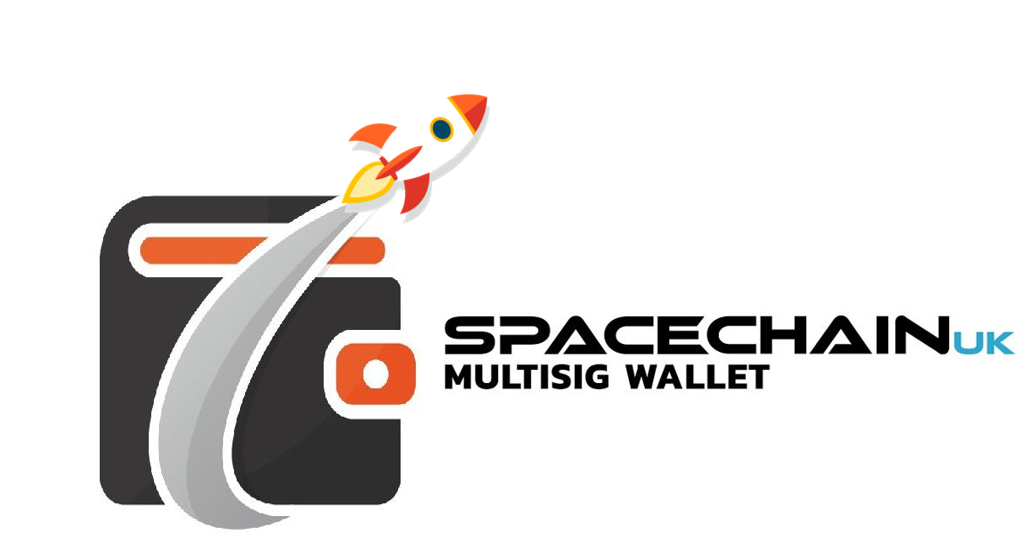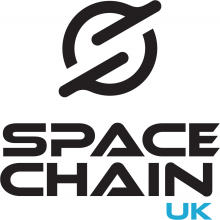
Objectives of the service
The digital currency industry is growing exponentially and is set to become a core part of our future financial infrastructure but it currently suffers from low levels of security regarding storage and transmission. This prevents the digital currency industry from achieving the same levels of trust as the traditional banking industry. Although payments using cryptocurrencies are much more efficient than standard traditional transfers, the level of security remains a concern. This is chiefly due to the fact that each blockchain transaction is authorised by private keys that a user might keep on an insecure device. If an attacker gains access to the private key, they gain access to the funds. SpaceChain has developed a multisignature wallet which requires its private signature to be combined with the user’s own private signature to fully authorise a transaction. The satellite wallet stays in low earth orbit, safe from physical attack, and is only communicated with through secure satellite transmissions making each transaction safe from attacks.
Users and their needs
SpaceChain is developing a digital asset wallet to enhance the security of custody and of transactions, targeting Fintech companies that provide such services to their customers. Users need a system architecture that keeps digital assets safe from theft and various attack.
Examples include:
- Crypto exchanges that take custody of users funds.
- Crypto wallet hardware companies.
- Crypto wallet applications, both custodial and non-custodial.
- Fintech companies providing other services incorporating one or more services above.
Operational challenge:
- Blockchain transactions based on terrestrial internet routinely sustain adversarial hacking such as ERC20 vector attacks, dusting attacks, malleability attacks, eclipse attacks and DDOS attacks. Although people are proposing various methods to defend them, new attacks are emerging in an endless stream.
- A number of projects have tried building a satellite blockchain node in the past but without success due to technological challenges such as on-board computer design and corresponding software system design that must be flight-tested.
- Launching payloads in orbit requires highly specialized knowledge and experience, something that is exceedingly rare in teams and unique to SpaceChain when it comes to matching it with blockchain skills.
- The integration of a space mesh network with current blockchain networks constitutes a technological challenge that has never been tackled before.
Target users are Fintech companies looking to enhance the security of their customers’ private keys’ access and storage, or that must maintain the highest possible secure access to digital currency funds on behalf of their customers.
Service/ system concept
SpaceChain’s Satellite-based Multisignature Blockchain Wallet enables users to perform transactions that are validated by a satellite and store information such as identity information on SpaceChain’s satellites in a very safe way.
As part of the Kickstarter project, SpaceChain leverages satellites and payloads that were developed and launched by SpaceChain. Such payloads are a satellite on-board computers equipped with an open-source operating system, the SpaceChain OS, the first in the world to be blockchain-enabled.
How is a transaction is executed:
A user creates a transaction and signs it with the first private key on the client, then sends the transaction with the first signature to the server.
The server packs and encrypts the transaction, and sends it back to the ground station。
After that, the ground station sends the transactions to the SpaceChain Cold Wallet in orbit, the wallet signs the transactions with its private key and then sends the signed transactions back to the ground station.
Finally, the ground station sends the signed transaction to the server which then broadcasts the signed transaction to the blockchain network
Space Added Value
Legacy solutions focus on the encryption of private keys on clients’ devices. The secure storage of private keys on satellite hardware and the use of satellite-ground station links for blockchain transaction verification provide a much more secure environment for the clients’ assets than what is currently available on the market.
SpaceChain uses satellite hardware to store clients’ private keys making exceedingly difficult for hackers to take control of them illegally given their physical remoteness.
Satellites communicate using highly secure channels and sophisticated encryption methods which increase the barrier for hacking. Every blockchain transaction must go through the satellite-ground station link where security schemes such as the public key verification are in place to prevent unwanted transactions and loss of funds.
Current Status
During the past three months, we have been focusing on:
- Constructing the security scheme of the Multi-signature wallet. Various security and encryption methods were applied to: client’s end, server, and communication link between satellites and server via ground station.
- Integration of Bitcoin on Multi-signature wallet. Previously the wallet only supported Qtum transactions.
- Launch schedule. Up to 2 launches have been scheduled for the next year making the network more robust and transactions faster.



